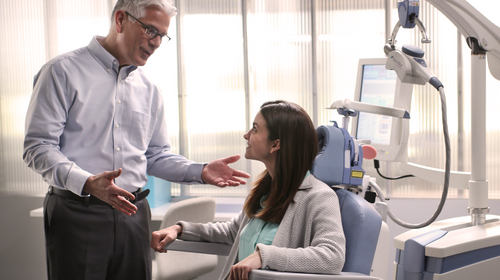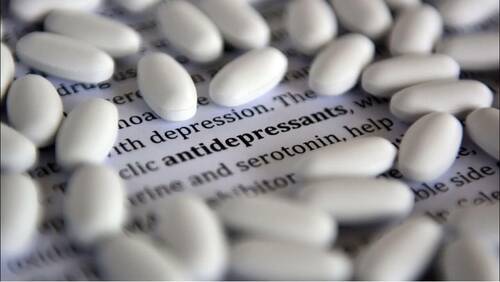
07 Nov What Are the Side Effects of TMS Therapy Compared to Antidepressants?
Call 1-800-662-HELP (4357)Individuals seeking treatment or substance use support for themselves or a loved one can call the toll-free PA Get Help Now helpline at 1-800-662-HELP (4357). The free, confidential hotline is available 24 hours a day, 365 days a year, and staffed by trained professionals.
Consulting with a medical professional is essential to assess the best treatment option tailored to personal needs and circumstances.
TMS therapy (Transcranial Magnetic Stimulation) and antidepressants are both widely used for treating depression, but they come with different side effect profiles. While antidepressants have long been a common choice, they often present a range of systemic side effects, from weight gain and drowsiness to sexual disorders.
TMS therapy is a non-invasive treatment that generally has fewer and milder side effects, such as mild headaches or scalp discomfort. These differences are essential for patients exploring the most suitable treatment options for their needs.

How Do Antidepressants Function in Treating Depression?
Antidepressants work by balancing the levels of neurotransmitters in the brain, which are chemicals that affect mood and emotional state. Antidepressants function by balancing chemicals in the brain, particularly neurotransmitters, which affect mood and emotions.
In the United States alone, studies have shown that approximately 13-15% of adults have reported using antidepressants, which equates to over 40 million people.
According to Dr. George, a pioneer in TMS research, While both TMS therapy and antidepressants offer effective treatment options for depression, their side effect profiles differ significantly. TMS therapy is often associated with minimal side effects, such as mild headaches and scalp discomfort, whereas antidepressants can lead to more varied and sometimes severe side effects, including weight gain, sexual dysfunction, and emotional blunting.

How Do TMS Therapy Side Effects Compare to Antidepressant Side Effects?
TMS therapy generally has fewer and milder side effects compared to antidepressants. The most common side effects of TMS include mild headaches, scalp discomfort, and occasional lightheadedness, which are typically temporary and manageable. In contrast, antidepressants can cause a broader range of systemic side effects, such as weight gain, nausea, drowsiness, sexual dysfunction, and dry mouth.
Antidepressants carry risks of more severe complications, like increased suicidal ideation or serotonin syndrome, especially when dosage is adjusted or mixed with other medications. TMS therapy is considered safer for patients seeking an effective treatment with a lower risk of serious side effects.
Who Should Consider TMS Therapy Over Antidepressants?
TMS therapy can be a highly effective treatment option for individuals who are looking for alternatives to antidepressant medications. While antidepressants are the first line of treatment for many people with depression, they don’t work for everyone, and some individuals may prefer a different approach. For those seeking alternative treatments, Delray Brain Science provides valuable resources and support for understanding and accessing TMS therapy. This non-invasive method offers hope for those who have not responded to traditional medications or wish to avoid their side effects.
Here are the key groups of people who might benefit from considering TMS therapy over antidepressants:
Patients Unresponsive to Antidepressants
For those who have tried multiple antidepressant medications without experiencing significant relief from their depression, TMS therapy offers a promising alternative. It is particularly useful for patients with treatment-resistant depression, which is depression that does not improve after trying at least two different antidepressants.
Side Effects from Antidepressants
Antidepressants often come with side effects that can be difficult to manage. Common side effects include weight gain, sexual disorder, sickness, dry mouth, drowsiness, and insomnia. For some, these side effects are so disruptive that they either stop taking the medication or experience diminished quality of life.
Non-Medication-Based Treatment
Some people prefer not to rely on medications to manage their mental health, either due to personal beliefs or concerns about long-term use. Antidepressants require ongoing use, and some individuals may not feel comfortable with the idea of being dependent on medication.
For Those with Health Concerns
Certain health conditions, such as liver disease, kidney problems, or heart conditions, may make antidepressants more risky or difficult to take. Some individuals may have concerns about the interactions between antidepressants and other medications they may be taking.
For Faster Symptom Relief
One of the key differences between TMS therapy and antidepressants is the speed at which results can be seen. Antidepressants can take several weeks to show any noticeable improvement, which can be frustrating for individuals suffering from severe depression.
For Targeted Treatment
Antidepressants affect the whole body, including various brain systems and neurotransmitter pathways. While they help manage mood, they can also cause side effects unrelated to depression. TMS therapy, on the other hand, is highly targeted—it specifically focuses on stimulating areas of the brain that are known to regulate mood, like the prefrontal cortex.
Is TMS Therapy Safer Than Taking Antidepressants?
TMS therapy is generally considered safer than antidepressants, primarily due to its non-invasive nature and fewer systemic side effects. While antidepressants can cause a range of side effects, such as weight gain, sexual dysfunction, and gastrointestinal issues, TMS typically causes only mild, localized effects like headaches or scalp discomfort.
Antidepressants carry risks of more serious complications, such as increased suicidal thoughts or serotonin syndrome, particularly in higher doses or when combined with other medications.
TMS has some rare risks, such as seizures, which are much less common compared to the risks associated with antidepressant medications.
TMS therapy presents a lower risk for severe adverse effects, making it an appealing option for many patients seeking depression treatment.
Conclusion
Choosing between TMS therapy and antidepressants ultimately depends on individual needs, medical history, and tolerance for side effects. While antidepressants remain a standard treatment for depression, their side effects can be substantial and affect overall quality of life.
TMS therapy, with its minimal side effects and non-invasive approach, offers an appealing alternative for many patients. Consulting with a medical professional is essential to assess the best treatment option tailored to personal needs and circumstances.
More information:
- https://www.va.gov/montana-health-care/programs/transcranial-magnetic-stimulation-tms-treatment-for-depression/
- https://my.clevelandclinic.org/health/treatments/17827-transcranial-magnetic-stimulation-tms
Editor’s note: This piece discusses suicide. If you have experienced suicidal thoughts or have lost someone to suicide and want to seek help, you can contact the Crisis Text Line by texting “START” to 741-741 or call the Suicide Prevention Lifeline at 800-273-8255.
Call 1-800-662-HELP (4357)Individuals seeking treatment or substance use support for themselves or a loved one can call the toll-free PA Get Help Now helpline at 1-800-662-HELP (4357). The free, confidential hotline is available 24 hours a day, 365 days a year, and staffed by trained professionals.
————
The information on MedicalResearch.com is provided for educational purposes only, and is in no way intended to diagnose, cure, or treat any medical or other condition.
Some links are sponsored. Products are not endorsed.
Always seek the advice of your physician or other qualified health and ask your doctor any questions you may have regarding a medical condition. In addition to all other limitations and disclaimers in this agreement, service provider and its third party providers disclaim any liability or loss in connection with the content provided on this website.
Last Updated on November 7, 2024 by Marie Benz MD FAAD
